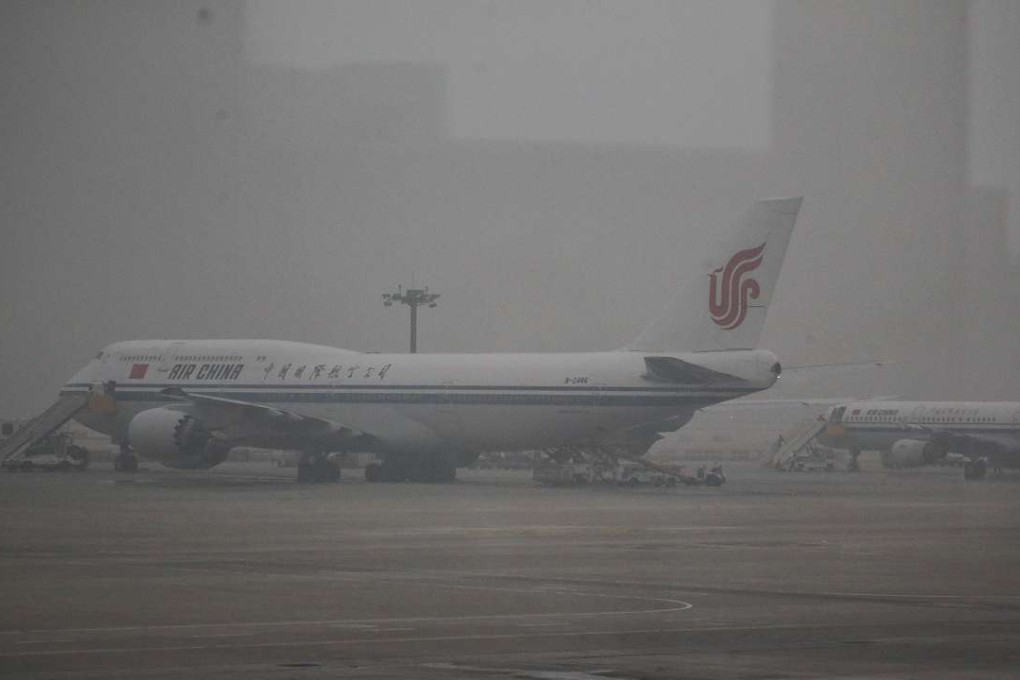China’s ‘smog refugees’ give airlines a boost during Lunar New Year – but troubles still lie ahead in 2017
International airline bookings soar 30 per cent over holiday season, and 1m predicted to travel abroad this year with the sole intention of giving their lungs a rest

Chinese airlines are toasting an unexpectedly cheerful Lunar New Year, with a sharp pick up in international passenger numbers in January, according to a new report from JP Morgan.
The lingering winter smog over large tracts of northern China, it seems, encouraged more to avoid not only the annual scrum in travelling to meet relatives, but exposing themselves any further to the worsening air quality, it said.
The investment giant underlines it still maintains a cautious view for the airline sector this year, but it’s certainly hard to ignore the thumping 30 per cent rise in international revenue passenger kilometers growth (a measure of sales volume of passenger traffic) compared to a year ago, from late December to the first three weeks of January.
“This demand pick-up was pretty unexpected as Chinese airlines have been busy cutting international capacity growth since October, due to industry overcapacity and the collapsing yield,” said JP Morgan’s Boyong Liu.
International consultancy firm Mckinsey & Company has highlighted China’s tourism industry as an economic bright spot as people earn more and head overseas in greater numbers.
Mckinsey predicts China’s middle class will likely account for 54 per cent of urban households and 56 per cent of urban private consumption by 2022, and as a dark cloud, literally, continues to hang over many parts of the country, more are being encouraging to seek a break from the hazardous murk, overseas, it says.
This demand pick-up was pretty unexpected as Chinese airlines have been busy cutting international capacity growth since October, due to industry overcapacity and the collapsing yield
